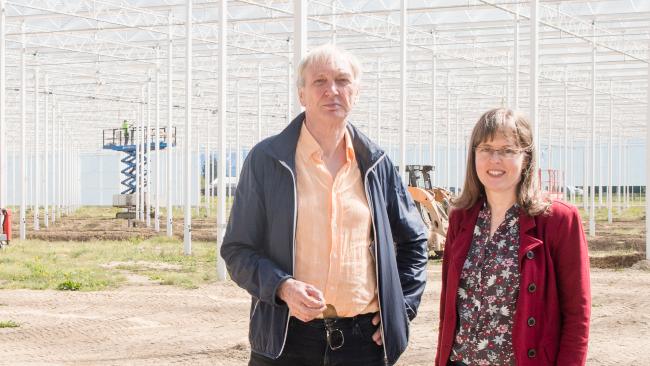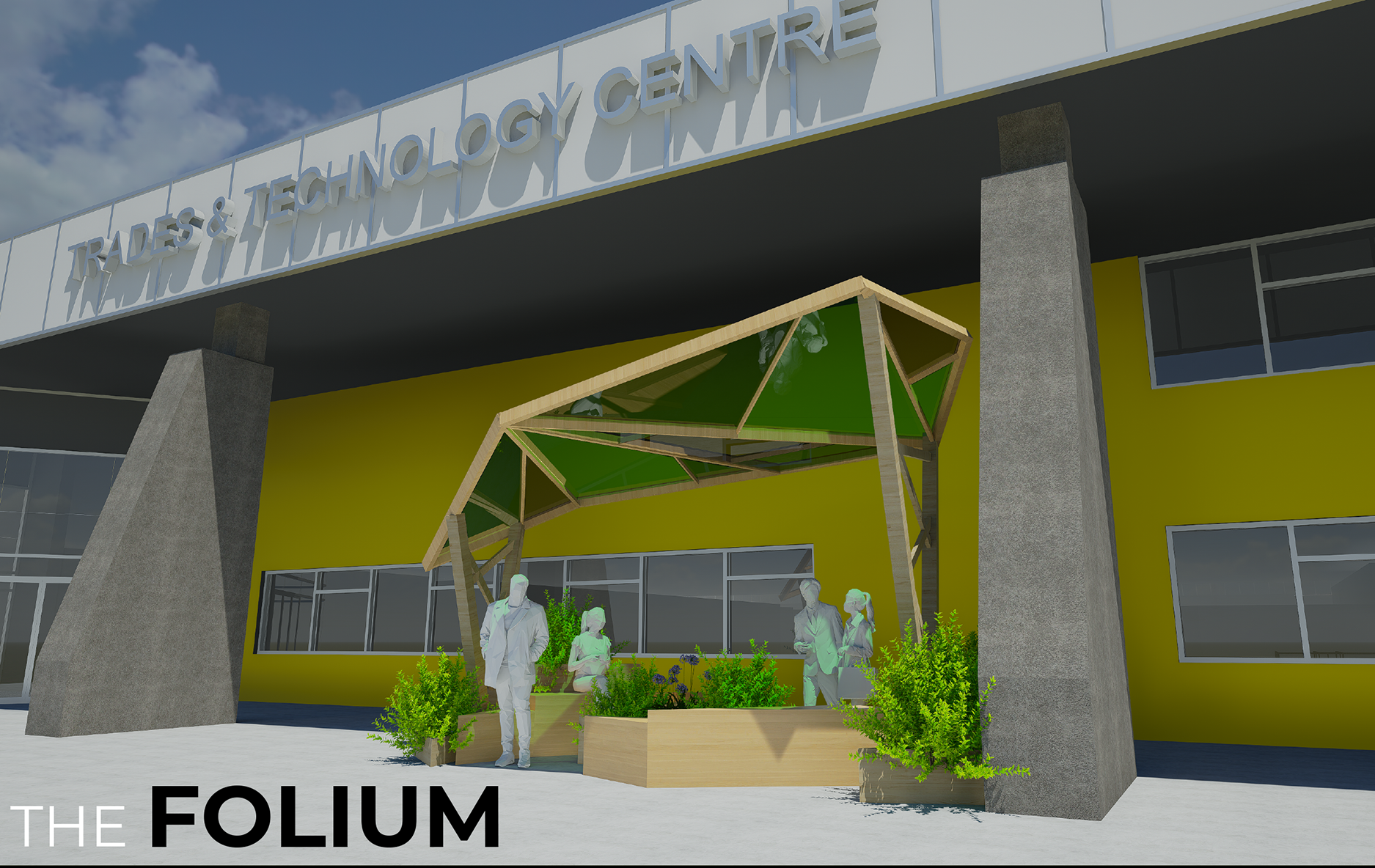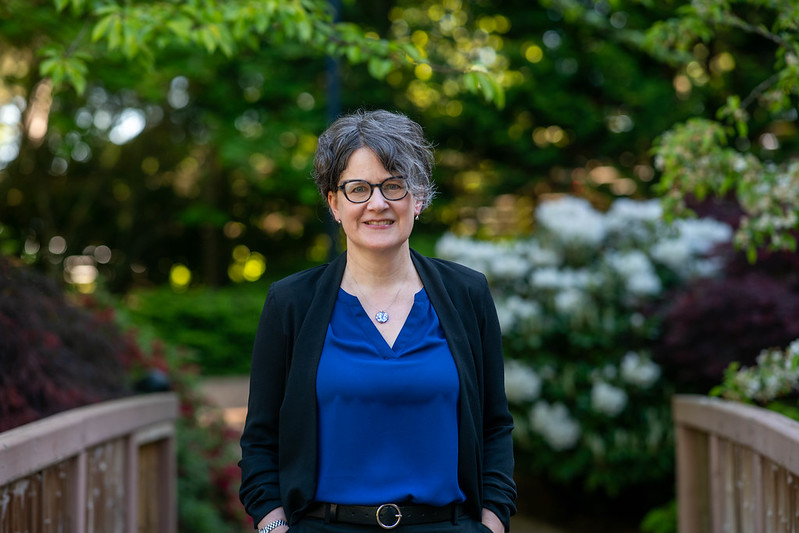Growing talent in the greenhouse industry
Did you know that employers who are willing to invest in developing their employees are more likely to retain top talent?
And not only that: they are also better equipped to thrive, as large numbers of experienced baby boomers move in droves toward retirement.
Like many employers in niche markets that require specialized skills, Prins Greenhouses’ president, Peter Reus, knows the value of a trained employee.
“We cannot find people who are trained in the greenhouse building business,” Peter says. “We have to train workers ourselves. Once we’ve invested in finding, interviewing and training people, how do we keep them? And how do do we help them work as a team?”
Peter founded Prins Greenhouses in 1981 when he immigrated to Canada from the Netherlands. Since then, the company has become one of the largest builders of greenhouses in B.C. and Ontario, supplying the horticulture industry with greenhouses and turnkey systems, including heating, shading, irrigation, automation and more.
Staff development and retention
Peter has several senior staff who have been with his company for decades. While these workers have mastered their craft, they may not always know the best way to communicate their know-how to younger colleagues.
“I knew I needed strategies to help my staff transfer their knowledge,” Peter says. “We have practical expertise, but we are not teachers. We needed a structured approach to training. And that is why I reached out to UFV to help us build a training program.”
Initial discussions soon revealed that such a program would need to be completely customized, which is a service that UFV provides under its Corporate Training arm. While UFV’s Faculty of Applied and Technical Studies offers training in fourteen different trades, there was not an existing course that would address Prins’ requirements. “Building greenhouses is a specialized field that does not fall within a regular trade,” Peter explains.
Did you know that employers who are willing to invest in developing their employees are more likely to retain top talent?
And not only that: they are also better equipped to thrive, as large numbers of experienced baby boomers move in droves toward retirement.
Like many employers in niche markets that require specialized skills, Prins Greenhouses’ president, Peter Reus, knows the value of a trained employee.
“We cannot find people who are trained in the greenhouse building business,” Peter says. “We have to train workers ourselves. Once we’ve invested in finding, interviewing and training people, how do we keep them? And how do do we help them work as a team?”
Peter founded Prins Greenhouses in 1981 when he immigrated to Canada from the Netherlands. Since then, the company has become one of the largest builders of greenhouses in B.C. and Ontario, supplying the horticulture industry with greenhouses and turnkey systems, including heating, shading, irrigation, automation and more.
Training the trainer and more
Meanwhile, career horticulturalist and educator Michelle Nakano joined the UFV team. “I was looking for a shift into part-time consulting work,” Michelle says. “I approached UFV to find out if they had any opportunities. After I sent my résumé, they asked if I would be interested in delivering a custom training program for Prins.”
It was the perfect match. “UFV hired Michelle, who is a really good teacher and has a horticulture background,” Peter says. “She understood our values and what we wanted. And she immersed herself in our industry to help us find a way that is not out-of-the-box, but that meets our needs.”
During the first three months, Michelle conducted three rounds of training: she started with an instructional skills workshop for supervisors, followed by a leadership and communications skills module for team leaders and management. Finally, she ran team-building exercises company-wide to foster mutual accountability and teamwork.
“I worked with Peter to outline the company’s history, draw an organizational chart, and gather facts and figures, such as how many square metres of greenhouses Prins has built,” says Michelle. “We also looked at Prins’ place within the horticultural industry in Canada. This exercise was very powerful. It helped staff see where they fit in the company and why their roles are important.”
Michelle’s training in Adult Education proved especially valuable. “I planned interactive workshops to draw in participants, even those who may have felt apprehensive about being in a classroom,” Michelle notes.
“My role was not to tell participants what to do but to help them identify problems, and generate ideas and solutions,” Michelle continues. “I used collaborative activities to give everyone a voice, and gathered everyone’s input to present to Peter.”
The training resulted in practical solutions, some of which could be implemented right away. A supervisor expanded the agenda for the daily morning staff meeting to improve team focus and communication. Staff started using cell phones to take pictures of schematics as a reference on the job site to reduce time lost asking questions.
In addition, the team is now developing standard operating procedures to help train new staff, improve processes, and ensure consistency across all job sites. “It is more impactful when solutions arise from collaboration,” Michelle points out. “People have ownership and are more likely to buy in.”
On-the-job mentoring
In phase two of her year-long contract, Michelle is now conducting field visits to evaluate the impact of the training and determine next steps. “I am getting a better understanding of the stories people shared in the classroom,” she says. “I am also testing to make sure that knowledge has transferred into real life and finding out what can be improved in the working environment.”
For example, she discovered that maintenance sometimes falls by the wayside on busy days and is working with supervisors to identify optimal times to get it done within the work schedule.
“I am collecting information and planning the next phase,” Michelle says. “It’s exciting because this training is fully customized. It’s not frozen in a corporate mold. Instead, solutions are coming from within the company and staff are learning to figure out for themselves how to become more organized and effective.
“This extends creativity beyond teaching in a regular classroom,” Michelle adds. “It’s allowing me to leverage a lifetime of experience and grow in a new direction.”
So far, feedback from employees who have participated in the training has been positive. “We are very pleased with how we are moving forward,” says Peter. “UFV provided what we needed. We are finding out how to implement a structured approach to teaching and learning. And we can build on that. Michelle is helping us find a way.”
B.C. Employer Training Grant
The B.C. Employer Training Grant (ETG) provides up to $8 million in funding for employers to support skills training for their current and new employees between April 1, 2019, and March 31, 2020.
The maximum an employer can receive per fiscal year is $300,000 in total government funding. “Claiming the Employer Training Grant made it easier for Prins to move ahead with custom training,” says Leah Peck, who works in Prin’s Human Resources department. “Having financial support went a long way and allowed us to invest the time and energy required to get everything together.”
Leah was able to apply for the grant online. “Each employee had to submit a statement that they were employed and provide their NOC code,” she says. “It took some follow-up, but it was worthwhile.”
Initially, Prins was not aware that they could claim the grant. “UFV streamlined invoicing to help us meet the deadline,” Leah says. “They really came through for us as our training provider.”





